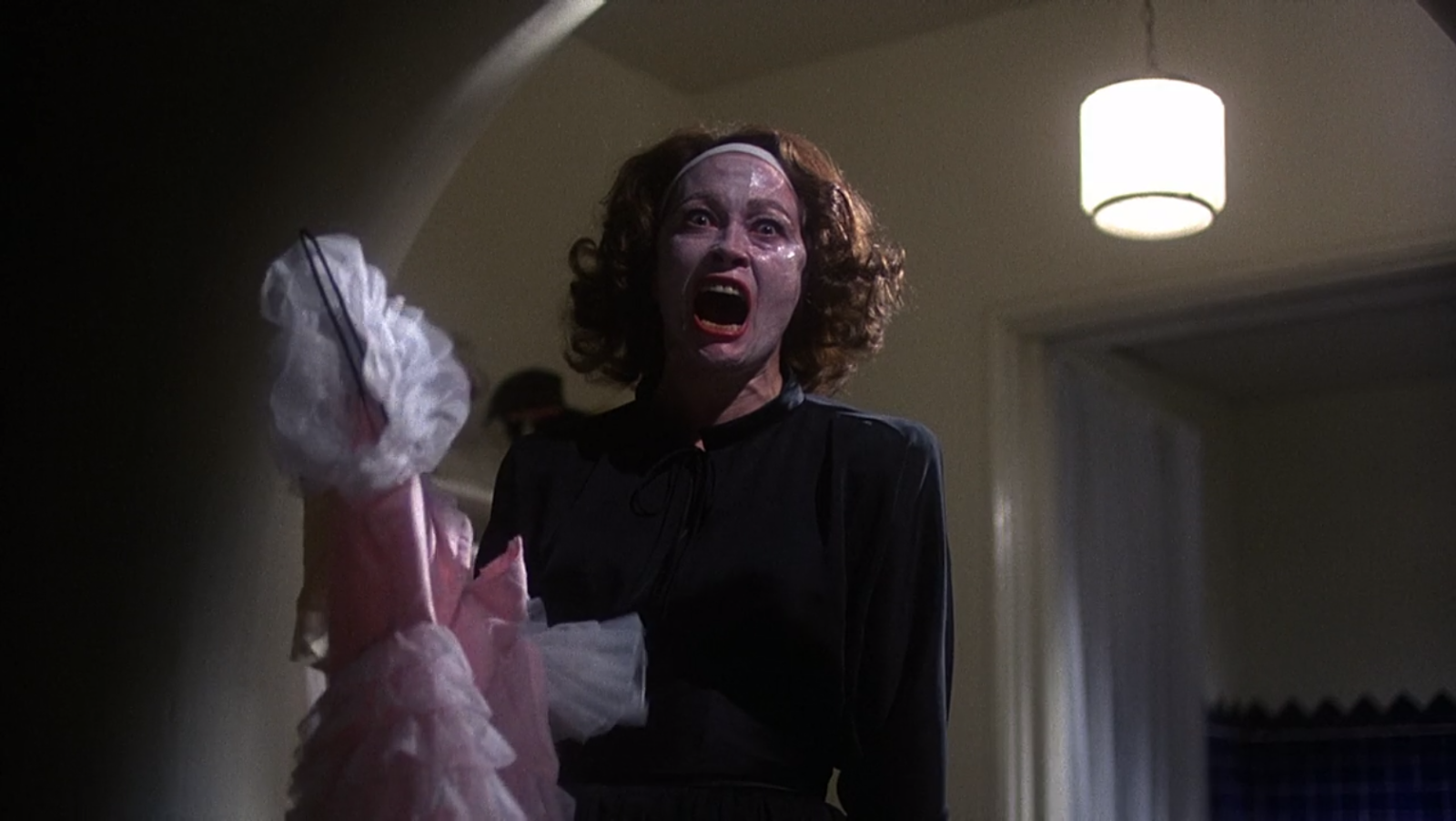"Movie Mommy Dearest" is a cinematic exploration into the complex, tumultuous relationship between a daughter and her legendary Hollywood mother. This 1981 film, directed by Frank Perry, is based on Christina Crawford's memoir of the same name, recounting her life with her adoptive mother, Joan Crawford. It offers a glimpse into the world of glitz and glamour, but beneath the surface lies a tale of emotional turmoil, abuse, and manipulation that captivates viewers with its raw intensity.
The film's portrayal of Joan Crawford, played by Faye Dunaway, is both chilling and mesmerizing. It explores the pressures of maintaining an image in Hollywood's golden age and the impact it had on Crawford's personal life. The relentless pursuit of perfection and control, coupled with a volatile temper, makes for an unforgettably haunting character study. Meanwhile, the audience is drawn into Christina's world, sharing her struggles and resilience in the face of her mother's overbearing nature.
Despite the controversy surrounding its release and the polarizing opinions it elicited, "Movie Mommy Dearest" has maintained its status as a cult classic. Its portrayal of complex family dynamics, combined with powerful performances, continues to resonate with audiences today. The film's legacy endures, sparking discussions about the challenges of fame, the impact of parental influence, and the universal quest for love and acceptance.
Who Was Joan Crawford?
Joan Crawford was one of Hollywood's most iconic actresses, renowned for her incredible talent and striking presence on screen. Born Lucille Fay LeSueur on March 23, 1905, in San Antonio, Texas, Crawford rose to fame during the silent film era and became a leading lady in the Golden Age of Hollywood. Her career spanned several decades, earning her numerous accolades, including an Academy Award for Best Actress for her role in "Mildred Pierce" (1945).
Personal Details and Bio Data of Joan Crawford
| Full Name | Lucille Fay LeSueur |
|---|---|
| Date of Birth | March 23, 1905 |
| Place of Birth | San Antonio, Texas, USA |
| Occupation | Actress |
| Major Awards | Academy Award for Best Actress (1946) |
What Is the Plot of "Movie Mommy Dearest"?
The film delves into the troubled relationship between Joan Crawford and her adopted daughter, Christina Crawford. Told from Christina's perspective, the narrative unfolds as a series of flashbacks, showcasing the highs and lows of their tumultuous bond. The story portrays Joan's struggle to balance her demanding career with motherhood, often resorting to harsh discipline and emotional manipulation.
Key moments in the film highlight Joan's obsessive need for control and perfection, which frequently results in explosive confrontations with Christina. These intense scenes are juxtaposed with fleeting moments of tenderness, illustrating the complexity of their relationship. As Christina grows older, she begins to assert her independence, leading to a dramatic and emotional climax that leaves a lasting impact on viewers.
What Makes "Movie Mommy Dearest" a Cult Classic?
The film's enduring appeal can be attributed to several factors that continue to captivate audiences:
- Powerful Performances: Faye Dunaway's portrayal of Joan Crawford is both riveting and unsettling, earning her critical acclaim and solidifying the film's status as a classic.
- Intense Drama: The film's exploration of the complexities of family relationships, coupled with its emotionally charged scenes, keeps viewers engaged from start to finish.
- Controversial Themes: "Movie Mommy Dearest" tackles challenging subjects, including child abuse and the pressures of fame, sparking discussion and debate among audiences.
- Iconic Lines: The film is renowned for its memorable dialogue, including the infamous "No wire hangers!" scene, which has become a part of popular culture.
How Did "Movie Mommy Dearest" Impact Pop Culture?
"Movie Mommy Dearest" has left an indelible mark on pop culture, influencing various forms of media and becoming a reference point for discussions about challenging family dynamics. The film's portrayal of Joan Crawford's character has inspired numerous parodies, homages, and references in television shows, films, and even music. Its legacy continues to be felt in the way it addresses themes of parental influence and the pursuit of perfection.
Why Did "Movie Mommy Dearest" Receive Mixed Reviews?
Upon its release, "Movie Mommy Dearest" received a mixed reception from critics and audiences alike. Some praised the film for its compelling performances and bold storytelling, while others criticized it for its sensationalism and perceived departure from the source material. The polarizing nature of the film's portrayal of Joan Crawford, as well as its dramatic tone, contributed to the divided opinions. Nevertheless, the film has gained a loyal fan base over the years, cementing its status as a cult classic.
What Lessons Can Be Learned from "Movie Mommy Dearest"?
At its core, "Movie Mommy Dearest" serves as a cautionary tale about the complexities of familial relationships and the impact of unchecked ambition and control. Viewers are reminded of the importance of empathy, understanding, and communication in nurturing healthy family dynamics. The film also highlights the pressures of maintaining an image in the public eye and the toll it can take on personal relationships.
Ultimately, "Movie Mommy Dearest" encourages audiences to reflect on the nature of love, acceptance, and forgiveness, emphasizing the need to break free from toxic cycles and prioritize genuine connections.




